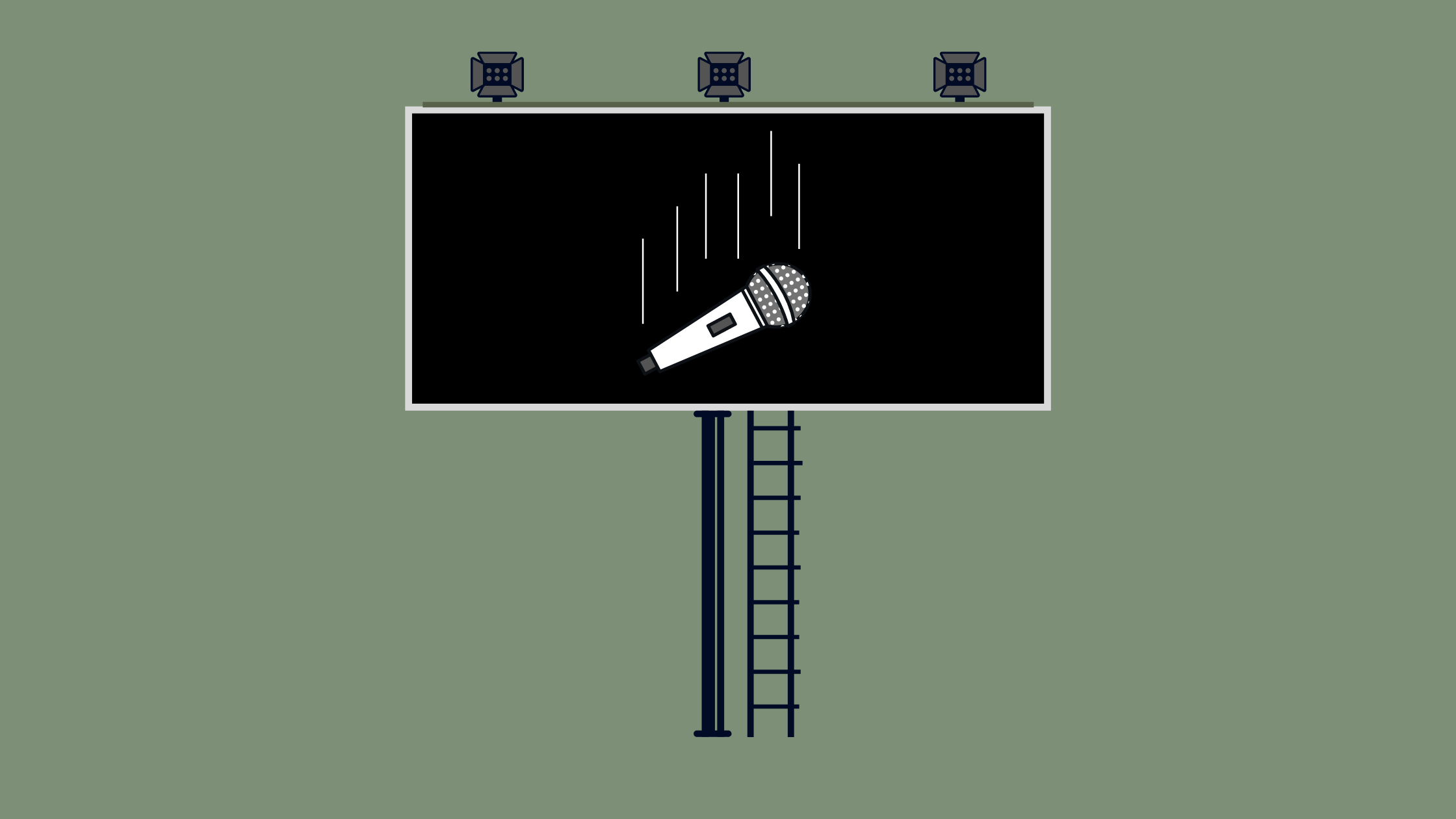
Who We Hurt When We Write About Abusers
Billboard belittles and attempts to discredit LGBT survivors by profiling alleged abuser Ben Hopkins.
Controversy appears never-ending for Billboard — a publication that gatekeeps genre and now uplifts sexual abusers. Today, Billboard released a profile of alleged sexual abuser and PWR BTTM member Ben Hopkins framing Hopkins’ upcoming album as a form of “putting the past behind them.” Editor-at-large Steve Knopper profiles Hopkins, spending more time painting Hopkins out to be more of a victim than Hopkins’ accusers, almost as though Knopper did not even consider that some of their readers may be survivors.
Accusations of sexual assault began circulating in 2017. According to Kitty Cordero-Kolin, an avid fan of the DIY scene in Chicago, Hopkins was a “known sexual predator, perpetrator of multiple assaults,” noting that “almost every single one of their victims is queer.” In response to the accusation, duo Liv Bruce and Ben Hopkins released a statement. They claimed neither party was contacted about the alleged abuse and provided an email so survivors could contact them directly. Soon after, Jezebel published an article quoting anonymous accuser “Jen,” who accused Hopkins of assault and asserted Liv Bruce was aware of her allegations. Two touring members, Cameron West and Nicholas Cummins, announced they were severing their affiliation with the duo. West cited Hopkins’ prior knowledge of the allegation as a primary reason for leaving. Afterwards, the duo’s label dropped them, streaming services pulled their then-newly released album, and the band canceled all upcoming events. Since, Hopkins and Bruce went their own ways.
Two years later, Billboard’s Knopper greenlit profiling the alleged nonbinary abuser. The profile largely acknowledges and dissects Hopkins’ experience. Although Knopper works to discredit the survivors’ experience, writing, “The claims against Hopkins are unusual and frustrating, in part, because they’re anonymous — and those who made them have chosen to remain silent.” Knopper inserts himself into the profile with that particular sentence, judging survivors’ actions — othering them as “unusual and frustrating.” At no point does Knopper attempt to center the accusers’ voices. In fact, Knopper addresses that Hopkins’ manager, Lisa Barbaris, pitched Hopkins writing an op-ed about their experience for Billboard back in 2017. According to Knopper, “Billboard’s editors suggested instead a reported story in which Hopkins as well as their accusers would be given the opportunity to tell their respective accounts.” So, then how the hell did this profile happen now?
Instead of equally providing voice to Hopkins’ accusers, Knopper uses their silence, lack of evidence, and Hopkins’ quotes to paint the accusers out to be “unusual.” According to the United Nations Communications Group’s Ethical Guidelines for Journalists, “journalists can help improve can help play a role in improving services for survivors; and they can contribute towards its prevention by encouraging a ‘zero tolerance’ attitude to violence against women and all forms of gender-based violence, whether experienced by women, girls, boys, or men.” Knopper builds a profile that supports the grey area of gender based violence (in turn, discrediting the accusers). Instead of providing a “zero tolerance” attitude toward gender-based violence, Knopper goes above and beyond to humanize the alleged abuser.
In the profile, editor-at-large Steve Knopper immediately introduces Hopkins as nonbinary and addresses their pronouns (they/them). Throughout the article, Knopper weaponizes Hopkins’ queerness to gain sympathy by referring to their now less than colorful appearance. Knopper describes how, “Hopkins, now 28, is skinny, with intense brown eyes, a long nose and a theatrical charisma suited for rock ’n’ roll, but unlike PWR BTTM’s heyday, when they would perform in tight, shiny dresses, their face smeared with colorful makeup and glitter, they appear on camera unadorned save for nail polish — a different color for each Skype session.” By positioning Hopkins’ queerness and general well-being in relation to their appearance, Knopper insinuates what queer pride and happiness should look like, thus building sympathy for the struggling artist.
Yet despite the fact that Hopkins is nonbinary, Knopper compares Hopkins alleged assaults to those of high profile male abusers, including “Chris Brown, Robin Thicke, Supreme Court Justice Brett Kavanaugh, and President Donald Trump.” Knopper then asserts how these men “have been allowed to carry on their careers despite allegations of sexual misconduct,” as if Hopkins is a lesser abuser, and in turn, insinuating that Hopkins is a victim themself. Knopper spends significant time attempting to debunk and discredit anonymous accuser “Jen.” At one point Knopper misgenders Hopkins, writing “Shortly after the Jezebel post, Hopkins read a Facebook entry mentioning the accuser’s hometown and says he became convinced that Jen was the woman he had met at the Midwest house party.” Apparently the Editor-at-large became so confused by using multiple pronouns that he refers former member of PWR BTTM Liv Bruce with he/him pronouns writing, “Hopkins and Bruce fell out in 2017, because, Hopkins says, Bruce talked to Hopkins’ accuser at one point without telling his then bandmate.” Bruce’s pronouns are she/her or they/them.
Knopper providing an alleged sexual abuser a platform to promote their album, misgendering Hopkins, and comparing a non-binary alleged sexual abuser to male abusers (yes, there are alleged women abusers) is irresponsible journalism.
When Knopper profiles an alleged abuser, it’s considered “objective” journalism. Although, when a female journalist depicts an accuser’s experience more subjectively, it’s deemed irresponsible. Former Babe writer, Katie Way, was decimated on the internet for writing about a woman who alleged she was sexually assaulted by Aziz Ansari. Way strongly believed she provided a voice to a victim of an assault. The article raked in controversy because of its subjective reporting, like mentioning Ansari offered his accuser white wine when she preferred red. Knopper’s profile falls in a similar vein by taking consistent note of Hopkins appearance (even though it’s irrelevant) like stating they were wearing “a red D&D T-shirt and 10-sided-dice earrings” because games have been therapeutic for a struggling Ben.
But what’s therapeutic for the people Hopkins assaulted? Seeing their name in headlines? Seeing that Hopkins is putting the past behind them like it’s not still these victims’ realities? While Ben deserves due process under the law, their fans can decide for themselves whether or not they choose to believe the accusers. Their fans not supporting an alleged abuser is not a form of “cancel culture.” To belittle LGBT people’s experience with sexual assault and lessen the impact of a non-binary abuser is dangerous. If Knopper finds a problem with our President having a platform and power, why present opportunity to Hopkins, when there are countless other LGBT touring artists who deserve a platform, especially when they’re struggling to produce art, earn money, and make headlines?
As a queer journalist, Steve Knopper, you gave power to an alleged abuser. As a queer journalist, Billboard, you gave a platform for an alleged abuser to market their upcoming album in the name of LGBT pride (and sloppily handled that, I might add). In turn, Knopper and Billboard decided giving voice to Hopkins concerns was more just and righteous than survivors’ pain. You can’t say you care about LGBT people during pride month, turn around on July 3, and publish this.


